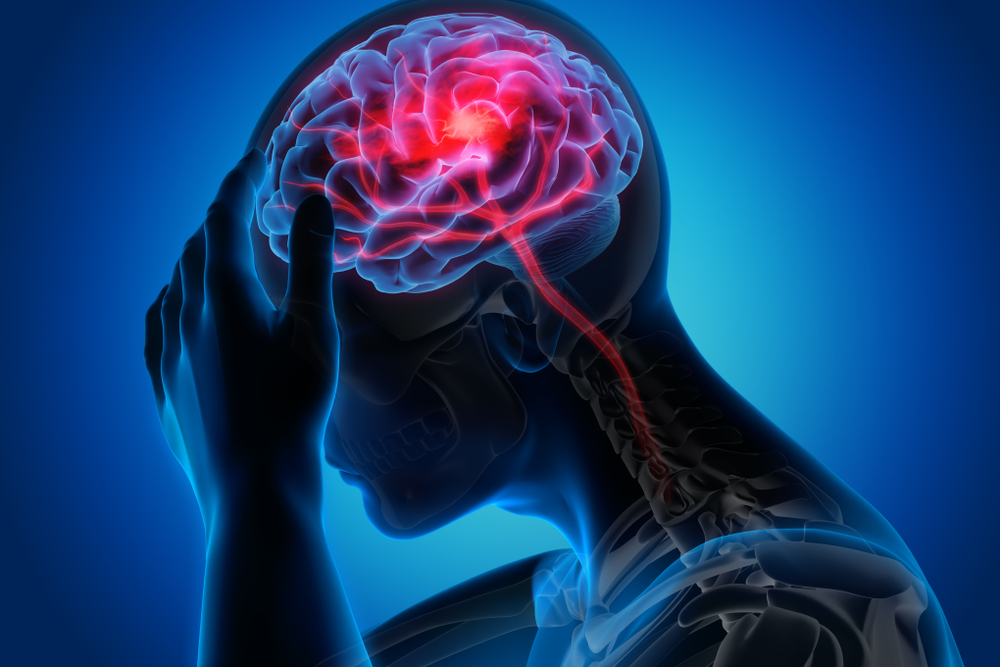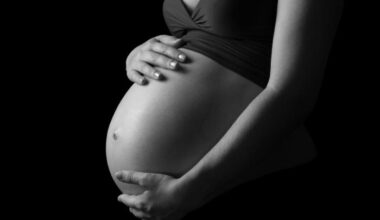Have you ever had a banging headache after a crying episode that makes you want to start crying all over again? Frequent headaches are a common problem that many people experience after crying. Shedding tears can provide emotional relief, yet it can also result in physical repercussions. When we cry, we trigger the release of a hormone named cortisol in our bodies, which contributes to headaches, muscle tightness, and other physical indications. Also, the tears we expel when we cry contain water and salt, potentially causing dehydration and subsequent headaches. In this article, we will look into the origins, remedies, and ways to stop headache after crying.
Key Takeaways
- Release of cortisol during crying can lead to muscle tension, particularly in the neck and head, which can subsequently result in headaches.
- This fluid loss, combined with the release of stress-related chemicals when crying, can lead to dehydration—a well-known trigger for headaches.
- To stop headache after crying drink lots of water, stay in a quiet, dark room, massage your temples, shoulders, and scalp, and consider taking an over-the-counter pain reliever like ibuprofen or acetaminophen, following the recommended dosage.
Understanding the Connection Between Crying and Headaches

There’s an intriguing and sometimes discomforting connection between crying and headaches that many individuals might not be fully aware of. When we cry, our bodies undergo a series of physiological changes. One significant factor in the connection between crying and headaches is the release of cortisol, often referred to as the stress hormone. Cortisol plays a crucial role in our body’s fight-or-flight response and can contribute to feelings of tension and stress. This release of cortisol during crying can lead to muscle tension, particularly in the neck and head, which can subsequently result in headaches.
Another aspect to consider is the composition of tears. Tears produced due to emotional responses differ from those generated as a response to irritants like dust or onion vapors. Emotional tears contain additional proteins and hormones that are not present in other types of tears. When we cry emotionally, we release not only built-up feelings but also small amounts of stress-related chemicals through our tears. This chemical release can contribute to physical symptoms such as headaches.
Crying itself can be physically taxing. The increased respiratory rate and the production of tears cause a loss of fluids from the body. This fluid loss, combined with the release of stress-related chemicals, can lead to dehydration—a well-known trigger for headaches. To understand the connection between crying and headaches, it’s essential to acknowledge the intricate interplay between our emotional and physical well-being.
While crying can provide emotional relief, it’s worth considering the potential physical effects it might have, especially for those prone to headaches. Reducing muscle tension, staying hydrated, and finding healthy ways to cope with emotional stress are all techniques on how to stop a headache after crying. But we will discuss a lot more on these later.
Dehydration and Headaches

When the body loses more fluids than it takes in, dehydration occurs, leading to an insufficient amount of water to carry out its normal functions. While many people associate dehydration with thirst, it’s important to recognize that its effects extend beyond simply feeling parched. One notable connection is the link between dehydration and headaches.
When the body is dehydrated, a series of physiological responses occur. One of these responses is the narrowing of blood vessels in an attempt to conserve water. However, this constriction also affects blood flow to the brain. Reduced blood flow to the brain can trigger a cascade of events that contribute to the onset of headaches.
Furthermore, dehydration leads to an imbalance of electrolytes—essential minerals such as sodium, potassium, and magnesium—that play a crucial role in maintaining proper bodily functions. Electrolytes help regulate nerve and muscle function, fluid balance, and blood pressure. An electrolyte imbalance due to dehydration can result in muscle cramps, fatigue, and headaches.
Interestingly, dehydration also affects the brain’s protective mechanisms. A fluid-filled sac surrounds the brain and helps cushion and protect it from impact. When dehydration occurs, this protective fluid becomes less effective, potentially increasing the likelihood of headaches and migraines.
If you want to stop getting a headache after crying, you have to prevent dehydration. Staying hydrated by drinking an adequate amount of water throughout the day is essential. Keep in mind that water needs can vary based on factors like age, activity level, and climate. Additionally, consuming foods with high water content, such as fruits and vegetables, can contribute to hydration.
Increased Blood Flow

Crying is also connected to the phenomenon of increased blood flow. This can contribute to the onset of headaches, particularly in certain individuals. When we cry, there’s a surge in blood flow to various parts of the body, including the face. This increase in blood flow serves to deliver oxygen, nutrients, and immune cells to the affected areas. While this response can be beneficial in promoting healing and maintaining tissue health, it also comes with potential side effects, especially for those prone to headaches.
For individuals susceptible to migraines, the connection between increased blood flow and headaches becomes more apparent. Migraine headaches are often associated with changes in blood vessel diameter, involving both constriction and dilation. The dilation phase, characterized by the sudden widening of blood vessels, can result in heightened blood flow to the brain. This increase in blood flow is believed to trigger a cascade of events, including the release of inflammatory substances and neurotransmitters, which ultimately contribute to the throbbing pain experienced during a migraine attack.
In the context of crying, the initial surge of blood flow to the face and head might exacerbate headache symptoms for those already predisposed to migraines or other types of headaches. This is particularly relevant for individuals who experience tension-type headaches, which can also be influenced by muscle tension and blood flow changes.
It’s important to note that while the link between shedding tears, increased blood flow, and headaches is notable, it’s just one piece of the puzzle. Headaches can have various triggers, including genetics, lifestyle factors, and environmental elements. However, for individuals who frequently experience headaches, understanding how different physiological responses, like increased blood flow due to crying, might contribute can be valuable in managing and seeking relief.
Healthy Tips on How to Stop Headache After Crying

Fortunately, there are several proactive steps you can take to stop or even prevent a headache after a crying episode. In the moments when a headache looms after shedding tears, turning to these strategies can make a significant difference. Whether you’re seeking to ease the throbbing discomfort that often accompanies headaches or hoping to take preventive measures for future episodes, these practical suggestions offer a range of approaches to suit your needs.
I have compiled these tips to address both the immediate discomfort and the potential triggers that can exacerbate headache symptoms. From hydration to relaxation techniques, each recommendation is aimed at helping you find relief and regain a sense of ease after a bout of crying. Here you go:
1. Stay Hydrated
Staying hydrated is crucial after crying, as tears and emotional responses can lead to fluid loss. Drinking water helps replenish lost fluids, maintain hydration levels, and minimize the risk of dehydration-related headaches. Adequate hydration also supports overall bodily functions and can contribute to improved well-being.
2. Rest in a Quiet, Dark Room
Find a calm, dimly lit environment to relax in. This can help reduce sensory stimuli that might exacerbate your headache. Resting in a quiet. dark room can promote relaxation and provide relief from the discomfort of a headache after crying.
3. Apply a Cold Compress
Place a cold or cool compress on your forehead for about 15 minutes. Cold therapy can help constrict blood vessels and reduce inflammation, providing relief from headache symptoms that may occur after crying. The cold sensation can also have a numbing effect, helping to alleviate pain. Ensure the compress is wrapped in a thin cloth to prevent direct contact with the skin and take short breaks between applications to avoid overexposure to cold.
4. Practice Relaxation Techniques
Engage in deep breathing exercises, meditation, or progressive muscle relaxation to alleviate muscle tension and promote relaxation. These techniques can help ease the physical and emotional stress that can contribute to headaches after crying. By calming your mind and body, you can potentially reduce the intensity of the headache and improve overall well-being.
5. Stretch and Massage
Gently stretch your neck and shoulder muscles to relieve tension. Massaging your neck, temples, and scalp can also help ease headache symptoms. These actions can alleviate muscle stiffness and improve blood circulation, which in turn may help reduce the discomfort of a headache that follows crying. Remember to use gentle movements and avoid applying excessive pressure to sensitive areas.
6. Over-the-Counter Pain Relief
Consider taking an over-the-counter pain reliever like ibuprofen or acetaminophen, following the recommended dosage. These medications can help alleviate the pain associated with a headache after crying. However, it’s advisable to consult with a healthcare professional before using any medication, especially if you have pre-existing medical conditions or are taking other medications.
7. Aromatherapy
You can also find relief from headaches through the use of essential oils like lavender or peppermint. Inhaling these scents or applying diluted oils to your temples might help. Aromatherapy can provide a soothing and calming effect that may alleviate headache symptoms. However, individual responses to scents can vary, so it’s recommended to test a small amount of oil and discontinue use if any adverse reactions occur.
When to See a Doctor

Experiencing headaches after crying is common, but there are instances when medical attention is warranted. If these headaches become frequent, intense, or worsen over time, it’s advisable to consult a doctor. Likewise, if the headaches are accompanied by symptoms such as nausea, vomiting, visual disturbances, weakness, or difficulty speaking, seeking medical care is essential.
Additionally, if the headaches significantly impact your daily life, last unusually long, or don’t respond to over-the-counter pain relievers, a professional evaluation is recommended. A family history of severe headaches, any underlying medical conditions, or changes in the pattern of headaches are also indicators to consider in a doctor’s assessment. Remember, while occasional post-cry headaches might be normal, persistent or concerning symptoms should prompt consultation with a healthcare professional for proper diagnosis and appropriate treatment.
How To Stop Feeling Sick After Crying?
Effective Strategies: To combat anxiety-related nausea, try deep breathing exercises, mindfulness practices, drinking water, eating mild foods, and resting.
What Happens if You Cry Excessively at Night?
Crying frequently, especially while sleeping, may indicate depression if other symptoms are present. Only a medical professional can provide a correct diagnosis. They can also help you deal with crying episodes and other symptoms.
Final Thoughts
In conclusion, understanding how to alleviate or prevent headaches after crying can greatly enhance our well-being. The delicate interplay between emotions, physical responses, and headaches sheds light on the multifaceted nature of this phenomenon. By staying hydrated, creating a calm environment, and practicing relaxation techniques, we can address the immediate discomfort and potential triggers associated with post-cry headaches. Incorporating cold therapy, gentle stretches, and over-the-counter pain relief can provide valuable relief from headache symptoms.
Furthermore, recognizing when to seek medical attention for persistent or severe headaches ensures that our overall health remains a priority. With a holistic approach that combines self-care strategies and professional guidance, we empower ourselves to manage and mitigate the impact of headaches after crying, fostering a healthier and more comfortable emotional and physical state.
Related Articles
- 50 Coping Skills for Teens + Free PDF
- Coping With Trauma-Related Dissociation +Free Ebook
- Tips on How to Deal With Pet Loss






